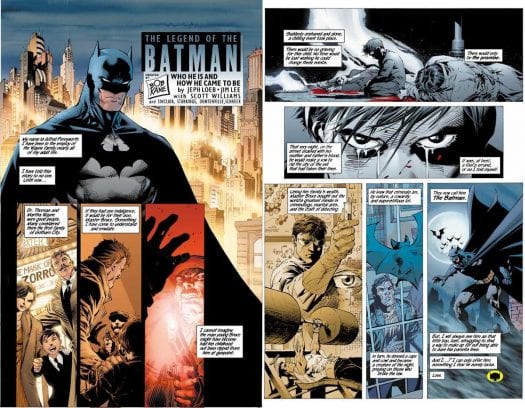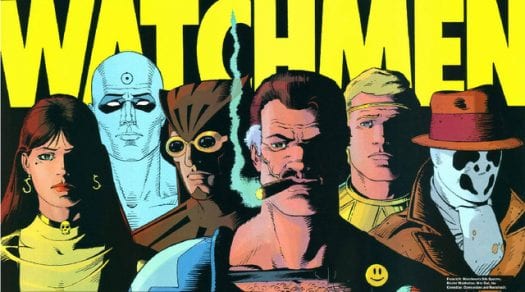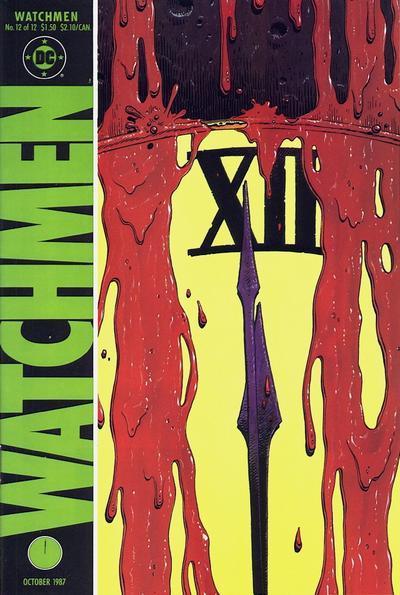Let’s face it: most of us are getting tired of the superheroes.
I’m not saying the current batch of superhero movies are not well-made; far from it. The movies are still highly entertaining. The characters themselves are compelling. Production quality is almost always fantastic. And of course, the movies still bring in the bank at the box office. Most of my issues come from how we’re reacting to the story plots: the events within the movies are beginning to have that same-old-same-old vibe.
We’re starting to know what to expect. The superhero origin is an understood trope in the lexicon. No one ever needs to see another origin story for Batman or Spider-Man. We barely need to see one for Aquaman. The traditional hero quest formula is also a known commodity. Put characters through some different paces!

Folks love Deadpool because it joyfully embraces the over-seriousness of superhero movies just as much as it lampoons them. This is in much the same way Teenage Mutant Ninja Turtles made waves in the mid-80s. Both Deadpool and TMNT happened a few years before their respective Watchmen iterations came out, and were early signs of superhero saturation.
Also running concurrently with both iterations of Watchmen are two major superhero crossover events: in 1986 there was Crisis on Infinite Earths, and today there is Avengers: Endgame. Crisis was DC Comics’ event that streamlined its continuity into a single new one. It was meant to start its entire line over, and in effect, it was the final act of everything that came before it. Kevin Feige has spoken in similar terms that Endgame is going to be the culmination of all the Marvel movies up until now and that every movie after will be part of an entirely new wave of movies. Both Crisis and Endgame serve as an end-cap to their eras, a proof that even DC and Marvel knew what they were doing was becoming staid.
Neither Crisis nor Endgame were meant to begin the next eras; merely to serve as a doorway into a new cycle. They could open the door, but their place was not to walk through it. And just as it was in 1986, the next big thing poised to walk through that doorway to define the new cycle appears to be Watchmen.

Comic book readers in 1986 knew Alan Moore and Dave Gibbons’ Watchmen was going to be good, but no one had any idea the scale of how far-reaching it would be. No one was expecting the industry’s Citizen Kane to enter the scene by kicking over paradigms and deconstructing the superhero. It was time to show just how incompatible the superheroes were with the real world, and what made superheroes work anyway. And it was time to age them up and make them literary. Watchmen did all of these things.
But as far as today goes, didn’t Watchmen already have its chance? Didn’t the Zack Snyder movie flop ten years ago?
Yes, but there was a different climate in 2009. X-Men & Spider-Man had run their course, the Nolan Batman movies only had one more to go, and Iron Man and Incredible Hulk were just beginning to take their turn. Between Heath Ledger and Robert Downey Jr., things felt new and exciting. They were fresh! Iron Man 2 hadn’t even come out yet; the modern superhero had yet to take over everywhere. It was still being constructed; nowhere near ready for deconstruction.
Also, the world itself was in an outwardly-optimistic place. Brexit was a long way off, and being comparable to Nazis was still an automatic way to lose your argument. Obama was the president of the United States, and his message was all about working together and working hard: “Yes We Can.” There was an optimism about the future projected from the executive branch on a messaging level, and it seemed like even the 2008 financial crisis was the end of the last era and able to be overcome with time. There was a new sheriff in town now. Things might have been tough, but they were also looking up.
The cultural environment of 2009 was not outwardly in the cynical place it was in 1986, and Snyder’s panel-for-panel reproduction of a cynical masterpiece didn’t stray far enough from its source material to maintain a life of its own. It reflected the era Watchmen came from rather than syncing with what the current culture of the day aspired to be.
Now today, unlike ten years ago, we’re more in line with where we were in 1986. I was not privy back then to the political landscape of Reagan and Thatcher, and no one talked to kids about the power struggles of Nixon and Watergate. My villains were Megatron, Dr. Claw, Prince Lotor and Skeletor, and war was a fictional thing with laser guns in cartoons based on the long gone World War II. I had no idea how close adults thought we were to nuclear annihilation or the like.

But this time around, I’m well aware of the upheaval Brexit is wreaking on Britain, and how the politics behind the George W Bush administration eventually grew into Trumpism and then genuine worry of authoritarianism invading the structure of our democracy. It’s a complicated, uncertain, scary, divided, cynical world we’re living in, and Moore and Gibbons’ Watchman traded in similar anxieties of its day. It reflected those fears in its inner world and placed its superheroes into a framework near to real life.
Today, like in 1986, we don’t need to see our superheroes going through origin stories or even taking on foreign dictators. We need to see how they navigate the systemic corporate webs of corruption of villains like Ozymandias who publicly purport to be heroes. We need to see our heroes fight through machine-like corporation controls and regain humanity and individualism. It’s an existential battle as much as a physical one that we need to see our heroes fight through.
Before Moore wrote Watchmen, he explored the existentialism of identity and life in Swamp Thing before building it into Doctor Manhattan’s part of Watchmen’s story, and he explored the individual struggling to remain so within an oppressive government in V For Vendetta before he built that into Rorschach’s part of the story.
Damon Lindelof has been trading in these same sorts of stories in both Lost and The Leftovers, and he has been tasked with bringing this version of Watchmen to life. He’s had a similar path of practice to Moore leading up to this job.
Lindelof is even handling the source material similarly to how Moore did. Moore used the old superhero stories of the ’50s and ’60s as a foundation when saying what the original Silk Specter and Comedian were really doing back in the day on their adventures. Moore was essentially remixing what had come before as the history in Watchmen.
In this modern take, Lindelof has come right out and said he’s “remixing” the original Watchmen. He’s not treating it gently like a piece of history. He’s treating it like a foundation for new stories, just like Moore was treating all of DC’s previous output.
Without being beholden to the original Charlton Comics character he intended to use in the early stages of Watchmen (DC outright forbade their use and suggested Moore create his own characters for the intended story), the story was able to go where it went.
Without this new Watchmen being beholden to any original story continuity, Lindelof will be able to explore today’s chaotic zeitgeist unencumbered as well. Just like before, he’s putting yesterday’s superheroes into a cynical world, and he’s going to see how they fare.
I suspect modern viewers of HBO’s Watchmen will be reminded of why superheroes don’t logistically work in the real world, but I suspect even more, so we’ll discover what we find so compelling about them despite themselves. We may just get a glimpse into what magic there is to us in the concept of the superhero, and also what part of the superhero we can see reflected in us.

